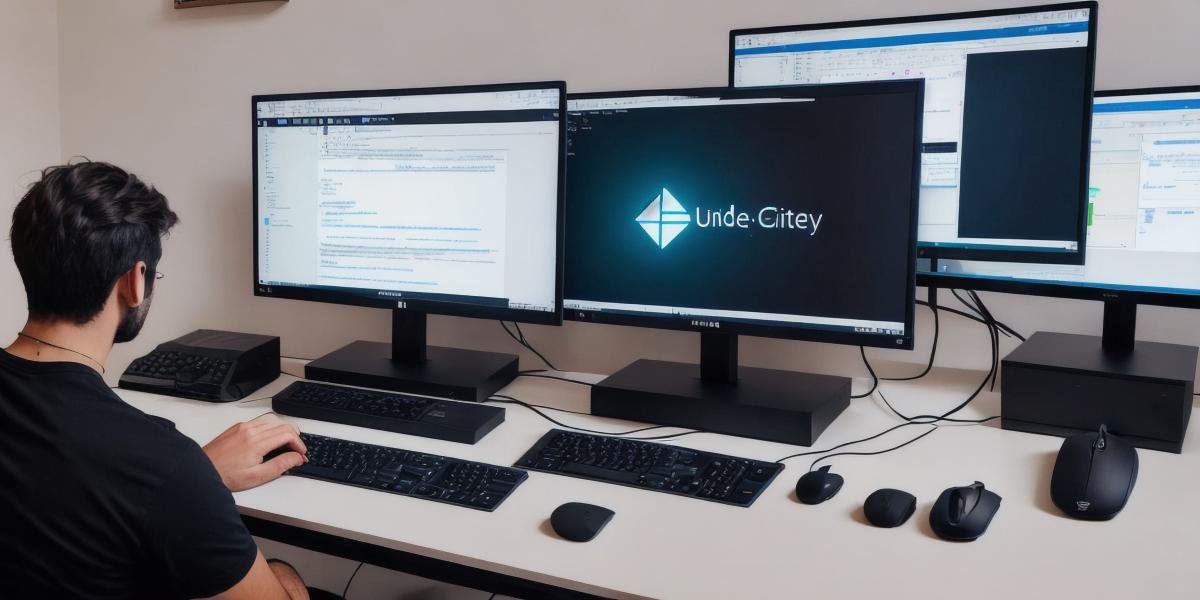Dear Valued User,
If you’re a web developer looking to expand your horizons into the realm of game development, Unity and Visual Studio might just be the perfect combination for you. In this text, we will discuss how you can effectively use Visual Studio for Unity development, enhancing your workflow and unlocking new possibilities.
**Why Use Visual Studio for Unity Development?
**
Firstly, let’s clarify why using Visual Studio with Unity is a smart move for web developers. Unity is a powerful game engine that offers extensive functionalities for creating engaging 2D and 3D games. However, its integrated development environment (IDE) may not cater to the needs of more complex projects or those familiar with Visual Studio’s advanced features. By integrating Unity with Visual Studio, you can take advantage of the latter’s rich toolset, which includes IntelliSense, debugging tools, and version control systems.
**Setting Up Your Environment: Unity & Visual Studio Integration**
To get started, you’ll need to set up your development environment. First, download and install Unity Hub and Visual Studio (Visual Studio Community Edition is free).
Once installed, follow these steps:
- Open Unity Hub and create a new project with Unity 2021.x or later.
- Configure the project settings, such as scripting runtime and platform target.
- Import Visual Studio into your Unity project by going to "Window > Open User Interface > Visual Studio Integration."

- Launch Visual Studio from within Unity by clicking "Open in Visual Studio" or using the hotkey combination Ctrl + Shift + O.
- Configure Visual Studio settings, such as project type and IntelliSense options.
Visual Studio Features for Unity Development
Now that you have set up your environment, let’s explore some of the features that make Visual Studio an excellent choice for Unity development:
- IntelliSense: Visual Studio’s advanced code completion feature helps you write code more efficiently by suggesting possible completions as you type. It also provides information about functions, variables, and classes, making your coding process smoother and more error-free.
- Debugging Tools: Visual Studio comes with powerful debugging tools that allow you to set breakpoints, step through code, inspect variables, and view call stacks. These features are invaluable for identifying and fixing bugs in your Unity projects.
* **Version Control Systems:**
If you’re working on a team project, Visual Studio supports popular version control systems like Git. This enables collaboration, version history tracking, and conflict resolution.
Conclusion: Embracing the Power of Visual Studio for Unity Development
In conclusion, using Visual Studio with Unity unlocks numerous benefits for web developers looking to create more complex games or explore game development in general. By setting up your environment and utilizing features like IntelliSense, debugging tools, and version control systems, you’ll be well on your way to optimizing your workflow and producing high-quality Unity projects.
So, dive into the world of Unity and Visual Studio integration today, and who knows?
You might just discover a newfound passion for game development!
**Exploring Further: Resources & Best Practices**

For more in-depth knowledge on using Visual Studio with Unity, check out these resources:
- Unity & Visual Studio Integration Documentation
- Visual Studio Marketplace: Unity Tools for Visual Studio
- [Microsoft Learn: Developing Games with Unity and Visual Studio](https://docs.microsoft.
